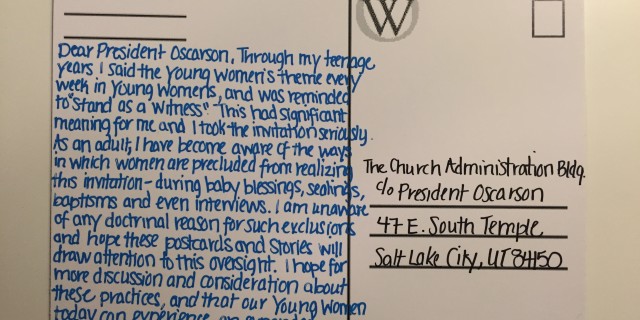As a woman in the Church and as a young woman growing up, I did not establish strong lasting relationships with men with whom I would have felt comfortable having as a witness to my marriage. I did, however, develop wonderful impactful relationships with the women in my life who guided me through my teenage years.
Inasmuch as having women witness special moments and ordinances within the church could alleviate some of the pain and confusion felt by women who do not have deep ties to Mormonism but who wish to be supported in making and keeping sacred covenants, I humbly ask for the prayerful consideration that women be allowed to witness.
Natasha Walls Smith
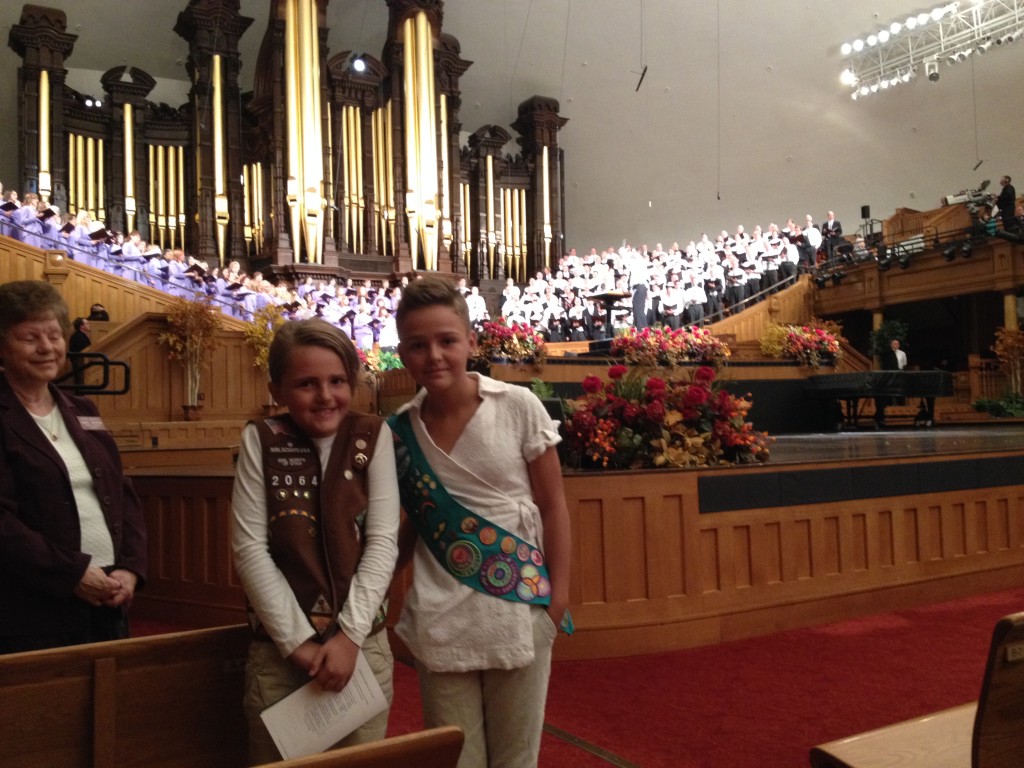
two girl scouts standing in front of the Mormon Tabernacle Choir
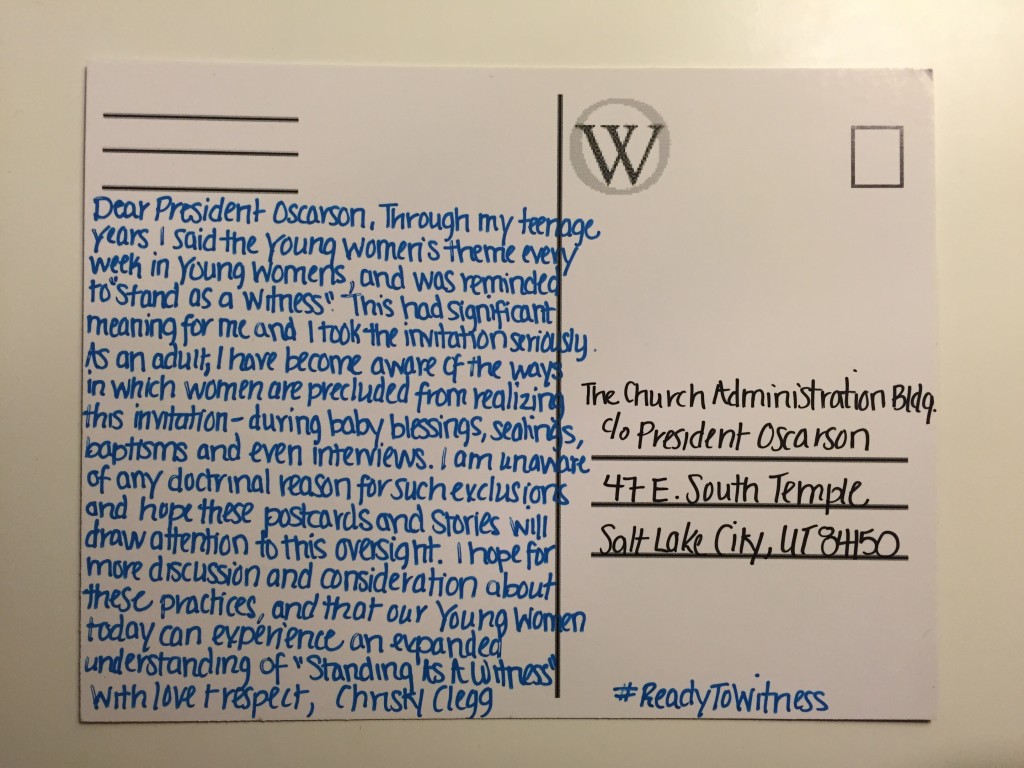
I’ve spent a lifetime in the Church witnessing—unofficially—sacred moments in the lives of my children, other family members and friends—baby blessings, baptisms, temple marriages. I watched as my father and father-in-law—not my mother or my mother-in-law—officially signed my marriage documents in the St. George temple. I loved them both but felt the sting of women’s exclusion on one of the most significant days of my life.
Christ considered Mary an appropriate witness to, arguably, the most significant moment in the history of Christianity—His resurrection—at a time 2,000 years ago when women often were not legally-recognized witnesses. Why, then, in 2016, are women still unable to serve as official witnesses to blessings, baptisms, and marriages in a church that bears His name?
Lorie
——
“I have three sons, and this means I am shut out of much of their spiritual progression. I won’t be involved in many of their important moments, like ordination. But there is no doctrinal reason I can’t be an official witness to their baptisms and sealing. Please, please reconsider these men-only policies.”
Leah Marie
——
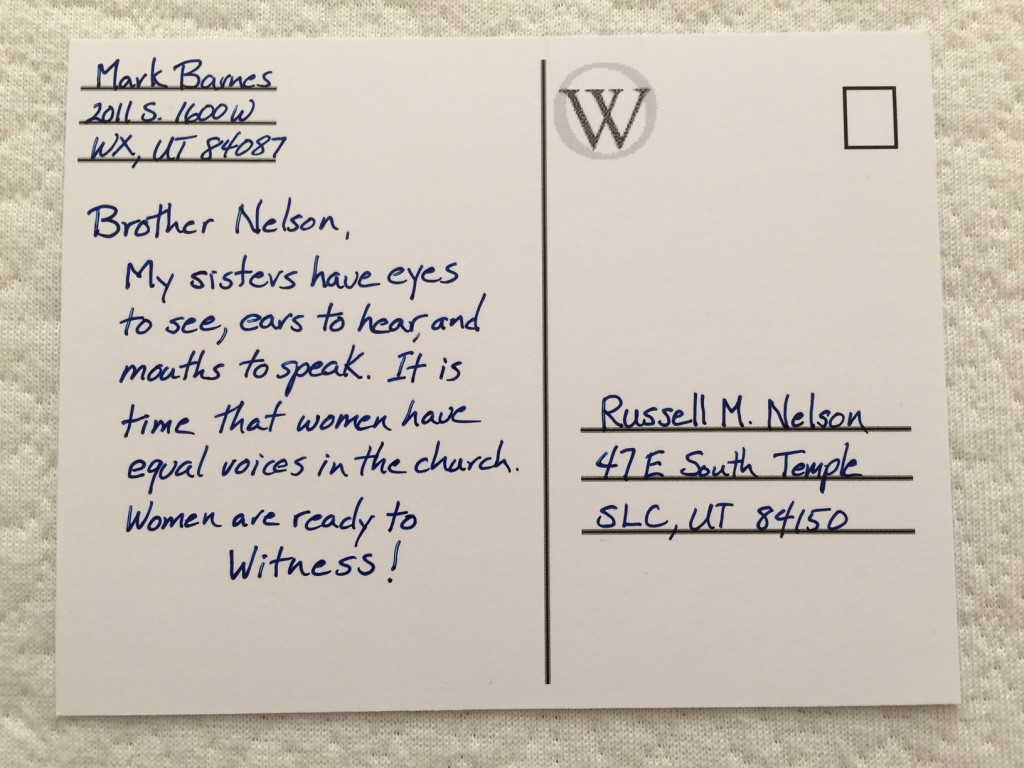
Postcard to Russell M Nelson
—–
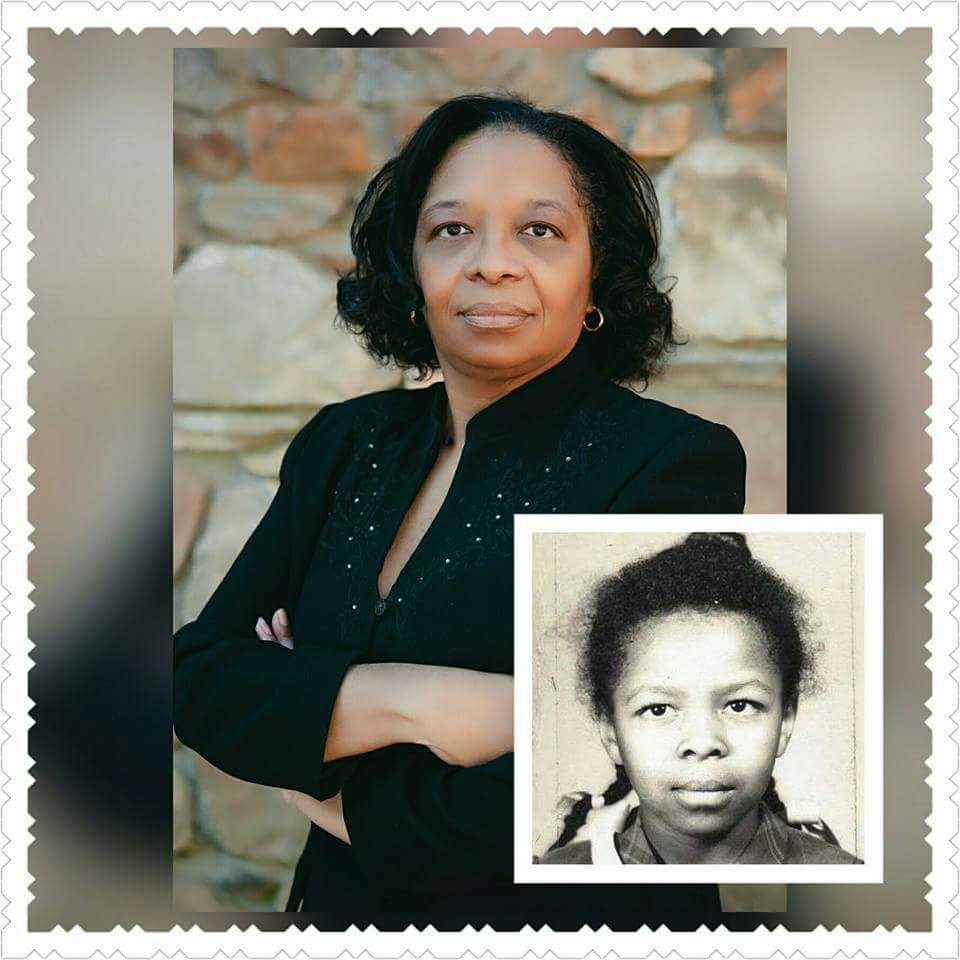
photo of a strong adult woman and a smaller photo of her in her youth.
I heard the anguish of sisters who had been asked inappropriate questions in their worthiness interviews and the trepidation of sisters who were worried about the questions their children would be asked. Although I tried to comfort and reassure these sisters, I could not help them or myself come to peace with a Church policy that prevented them from witnessing these interviews.
——
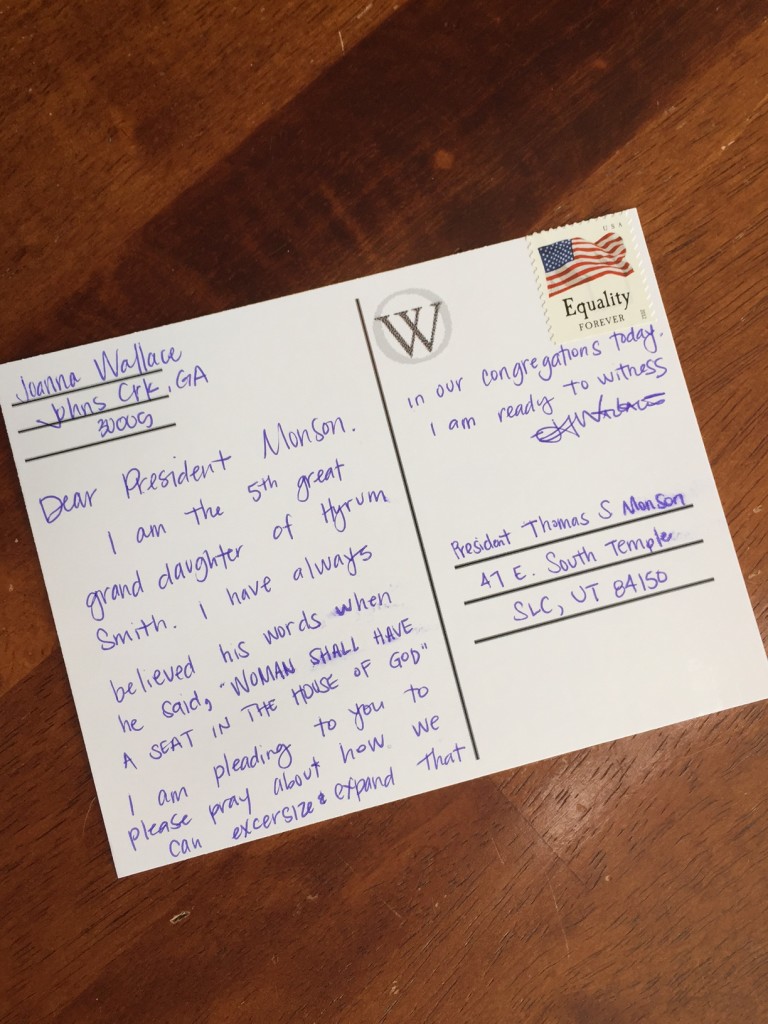
Postcard addressed to President Thomas S. Monson
——
We are Ready to Witness.
JOIN US.






